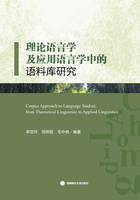
2. Background
Researchers have reported that academic writing has experienced a shift from being personal to impersonal and then to personal (Bazerman,1984; Kuo,1999; Hyland,2004; Hyland &Jiang,2017; Swales,1990). For instance, research articles from about 350 years ago were mainly letters exchanged between scientists(Swales,1990). From the end of the 19th century to the 1980s, scientific papers were seen as“a matter of fact”reports(Swales,1990:111). Studies have shown that the academic text has become impersonal, defined as a“shift from description and narration to explanation and analysis”(Kuo,1999:122). Academic writing tended to report methodology and results of an empirical research in an objective way (Bazerman,1984;Swales,1990). This led to a convention of the text being“author evacuated”(Geertz,1988). It is not until recently that academic discourse is seen as an interactive forum, in which writer and readers negotiate, be persuasive, seek alignment and claim credibility. In other words, academic writing is seen as an interactive dialogue between writer and reader which involves a personal manifestation of the writer and a recognition of the reader's reception of the text(Çandarlɪet al., 2015; Ivanič,1998; Swales,1990).
Indeed, one of the goals of academic writing is to stress the newsworthiness of the research and to seek consensus with the readers. In this respect, “Writers have to select their words so that readers are drawn in, influenced and persuaded”(Hyland,2002:1093). Most previous study on FPPs depict the pragmatic functions, the writer identity and the hidden purposes of using the FPPs in academic texts. However, dissertation as a specific genre of academic discourse, there are two more objectives that need to be achieved through the texts. One is to report the student writer's academic achievement and the other, prove the writer's research and academic writing ability. To achieve these interactive writer-reader goals, the novice writers always face a number of choices. Firstly, whether to include self-representation pronouns or non-self-representation expressions. As an example, the student needs to decide if he wishes to write, as I have mentioned as opposed to as mentioned. He/she also has to decide between the singular FPP I and the plural FPP we. The writer needs to decide which FPP is more appropriate to achieve the pragmatic goals that he/she seeks to achieve. For example, he/she needs to decide whether to write, I can see as opposed to we can see. Additionally, the writer needs to decide whether or not include the readers or simply use we to replace I to avoid being singled out or be obvious in the discourse, for example, the uses of as we all know and we conduct the research in a singly authored thesis. It is admitted that these choices are probably only traceable then and there when the students write the theses. And exploration or interview after the writing may not give the full or real picture of why the choice was made. However, with the pragmatic functions that presented by I, we and other impersonal expressions that may serve the same discursive purpose in the texts, what was behind these choice may be generalised. It is out of this concern that the choices that these student writers face are discussed in this paper. A set of principles influencing the usage of the two FPPs and also the constraints of using I and we are proposed. In so doing, I have to admit that these discussions are highly subjective and are reliant on my interpretation. However, I would argue that the discussion on the choices and the principles are based on the analyses of students' uses of the FPPs, the phrases of I, we and their verb collocates, and the textual functions in their dissertations. The research may therefore serve as a useful reference in EFL academic writing or training practice.